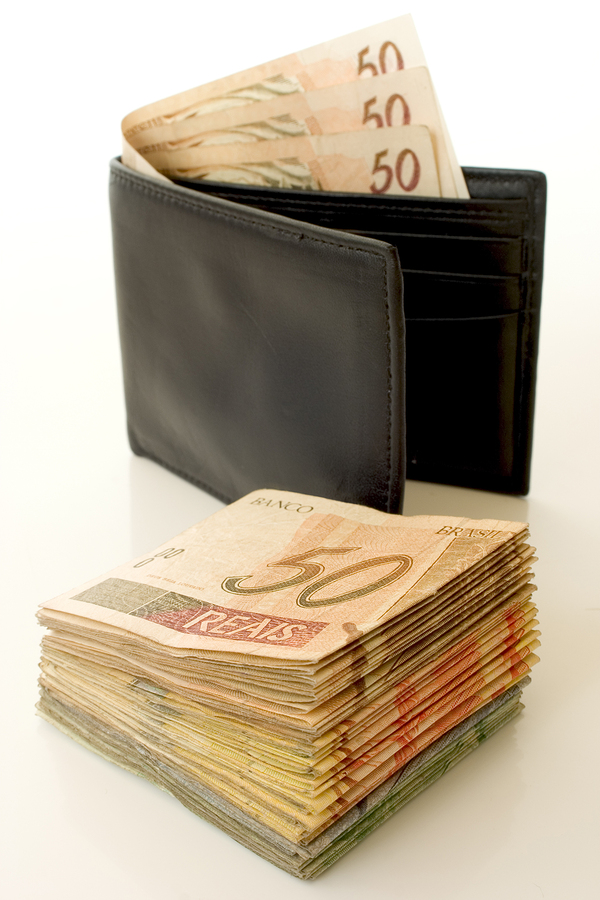BB Seguridade Participacoes SA’s strategy of piggybacking on its corporate parent’s 5,400 bank branches to sell policies is making it the world’s most profitable insurer.
The company will post a 44 percent return on equity in the next 12 months, the most among the world’s largest insurers by market value, analyst estimates compiled by Bloomberg show. Shares have risen 37 percent in Sao Paulo since state-run Banco do Brasil spun it off in April, the best performance on the BM&FBovespa Brazil Financial Index. Local competitor Porto Seguro SA gained 26 percent, while the benchmark Ibovespa sank 14 percent.
By using the bank’s branches to sell home insurance to customers taking out mortgages and auto policies to borrowers shopping for car loans, BB Seguridade saves money that would otherwise be used to pay brokers. It’s an advantage that many of its global peers don’t have, as regulatory restraints in the U.S. and other countries prevent banks from owning insurance companies, according to Howard Mills, the San Francisco-based chief adviser of Deloitte LLP’s insurance-industry group.
“The biggest challenge for insurers is to manage distribution channels, and BB Seguridade has Banco do Brasil’s huge network at its disposal,” said Rodolfo Amstalden, an analyst at Sao Paulo-based Empiricus Research who recommends buying the stock. “Not many companies are able to offer a return on equity above 30 percent, and BB Seguridade does that mainly because it’s backed by Banco do Brasil’s structure.”
April IPO
While countries such as the U.S. started enforcing stricter rules for the financial industry after the 2008 crisis, regulation in Brazil hasn’t been subject to any major overhaul, Amstalden said.
Banco do Brasil, which operates the largest network of bank branches in the country, spun off 34 percent of the insurer last year, raising 11.5 billion reais ($4.9 billion) in what was the world’s biggest IPO of 2013. While selling through the bank’s branches was always part of the business plan, demand for the IPO was muted amid a slump in Brazil’s equity market, Amstalden said. The company’s financial results since the share sale are convincing investors that the strategy is working, he said.
BB Seguridade’s adjusted net income was 2.26 billion reais last year, according to data compiled by Bloomberg. The average estimate of nine analysts was 2.19 billion reais. Operating expenses in 2013 were $218.3 million, compared with an average of $4.01 billion among the world’s largest insurers, according to data compiled by Bloomberg.
Customer Information
The benefits of the relationship with Banco do Brasil go beyond just using the bank’s branches as a sales channel, according to Werner Suffert, BB Seguridade’s chief financial officer. It also gives the insurer access to customer data that it can use to set premiums more efficiently, he said.
“Banco do Brasil has known its clients for a long time and has a lot of information about them,” Suffert said by phone from Brasilia. “That helps us when it comes to assessing the risks involved in each sale.”
The insurer’s stock has gained while the Ibovespa sank the most among the world’s major stock gauges as analysts lower their projections for growth in Latin America’s biggest economy. The shares rose 21 percent in the past six months as the benchmark sank 9.2 percent. Gross domestic product will increase 1.67 percent this year, according to the estimate of about 100 economists in a central bank survey released yesterday, down from a projection of 2.2 percent in September.
Analyst Recommendations
The Brasilia-based company also stands to benefit from greater use of insurance in Brazil, said Oliver Leyland, a portfolio manager at Mirae Asset Global Investments. BB Seguridade said in its IPO prospectus that premiums on life insurance policies sold in Brazil are equivalent to 1.7 percent of its gross domestic product, which compares with a ratio of 13.9 percent in Taiwan and 6.2 percent in France.
“Insurance is a sector being driven by low penetration and high demand,” Leyland said in a phone interview from New York. “We like BB Seguridade.”
Nine of 15 analysts surveyed by Bloomberg rate the stock a buy, with five recommending holding the shares and one advising clients to sell.
Growth in the insurance industry may ultimately negate the advantage BB Seguridade gains from its relationship with its parent, said Nina Czarnowski, an analyst at research firm Cerulli Associates in Boston. As time goes by, more educated clients could start demanding that Banco do Brasil offer a wider range of products, including ones sold by different providers, Czarnowski said in an e-mailed response to questions.
Political Risk
Citigroup Inc. analysts including Daniel Abut wrote in a Feb. 11 research note that while Brazil’s insurance industry is attractive, investors should consider BB Seguridade to be fully controlled by the state-run bank, making it subject to government decisions that don’t always necessarily match minority shareholders’ interests. They rate the stock the equivalent of hold.
While some investors may avoid buying shares of state- controlled companies on concern that government intervention might hurt earnings, BB Seguridade is well managed and the political risk to its business is low, Empiricus’s Amstalden said.
“BB Seguridade is an exception among state-owned companies,” he said. “It’s an efficient operation and capable of sustaining high growth rates in the long term. We recommend buying.”
–With assistance from Zachary Tracer in New York and Francisco Marcelino in Sao Paulo. Editors: Richard Richtmyer, Bradley Keoun





















 Insurance Groundhogs Warming Up to Market Changes
Insurance Groundhogs Warming Up to Market Changes  Allianz Built an AI Agent to Train Claims Professionals in Virtual Reality
Allianz Built an AI Agent to Train Claims Professionals in Virtual Reality  Flood Risk Misconceptions Drive Underinsurance: Chubb
Flood Risk Misconceptions Drive Underinsurance: Chubb  How Americans Are Using AI at Work: Gallup Poll
How Americans Are Using AI at Work: Gallup Poll 




